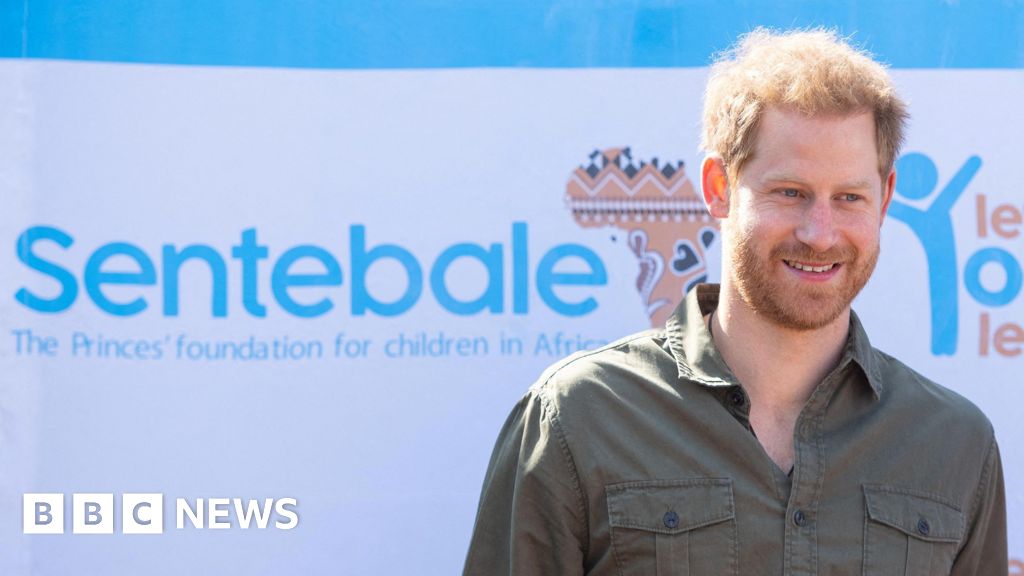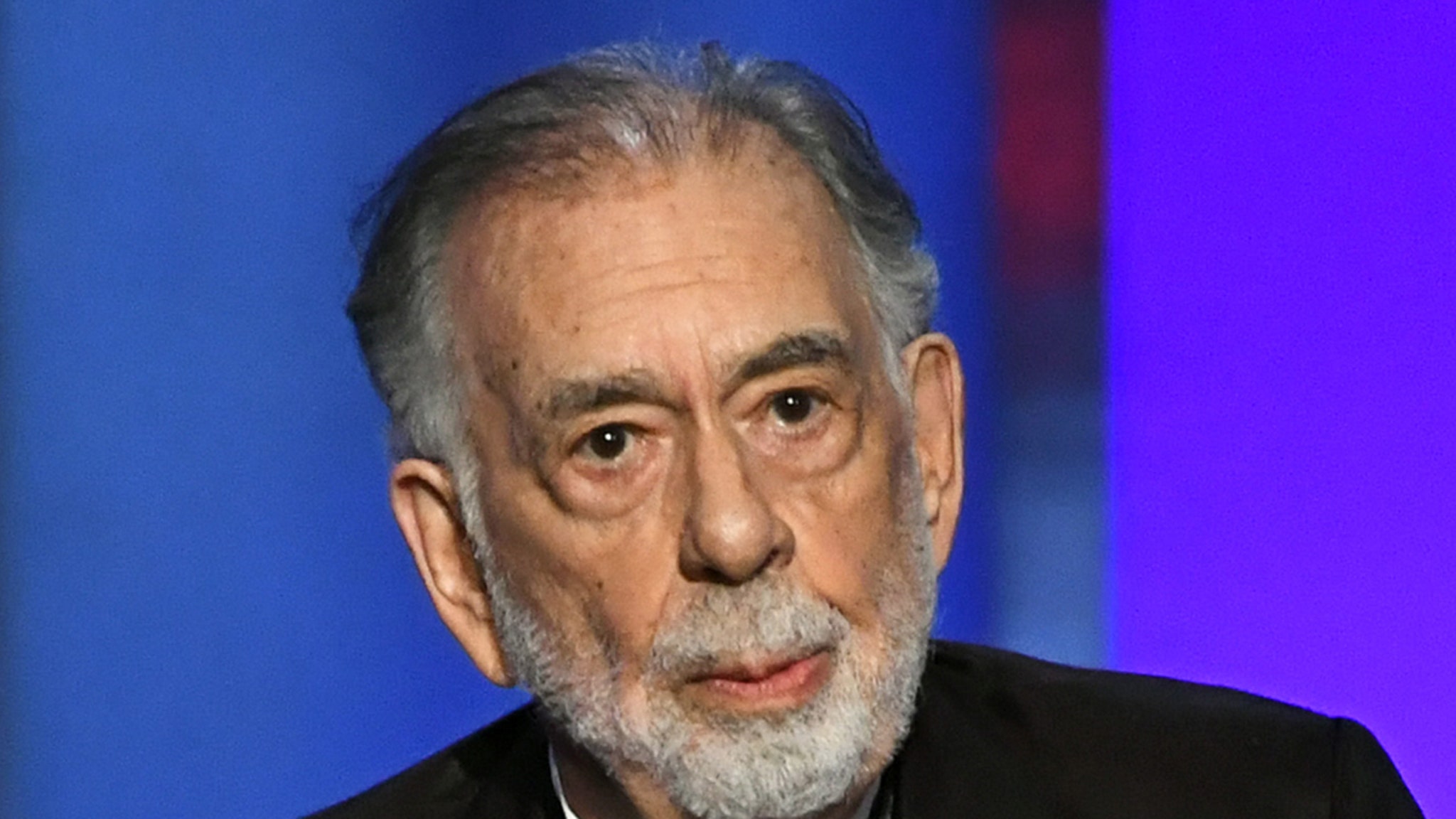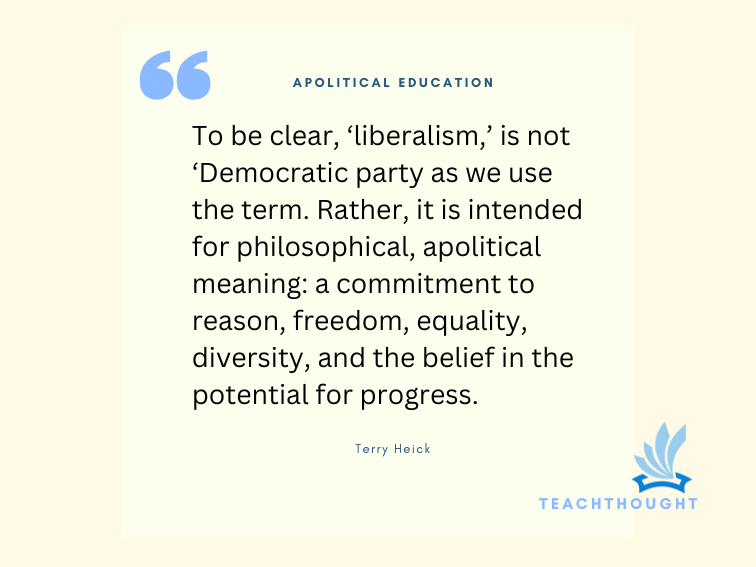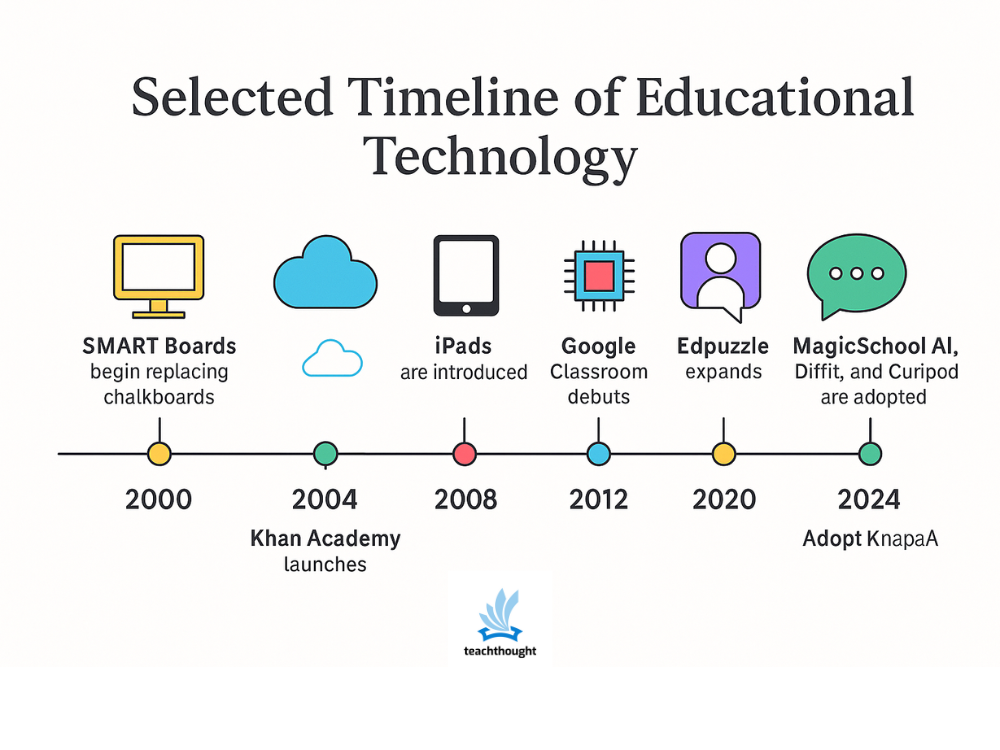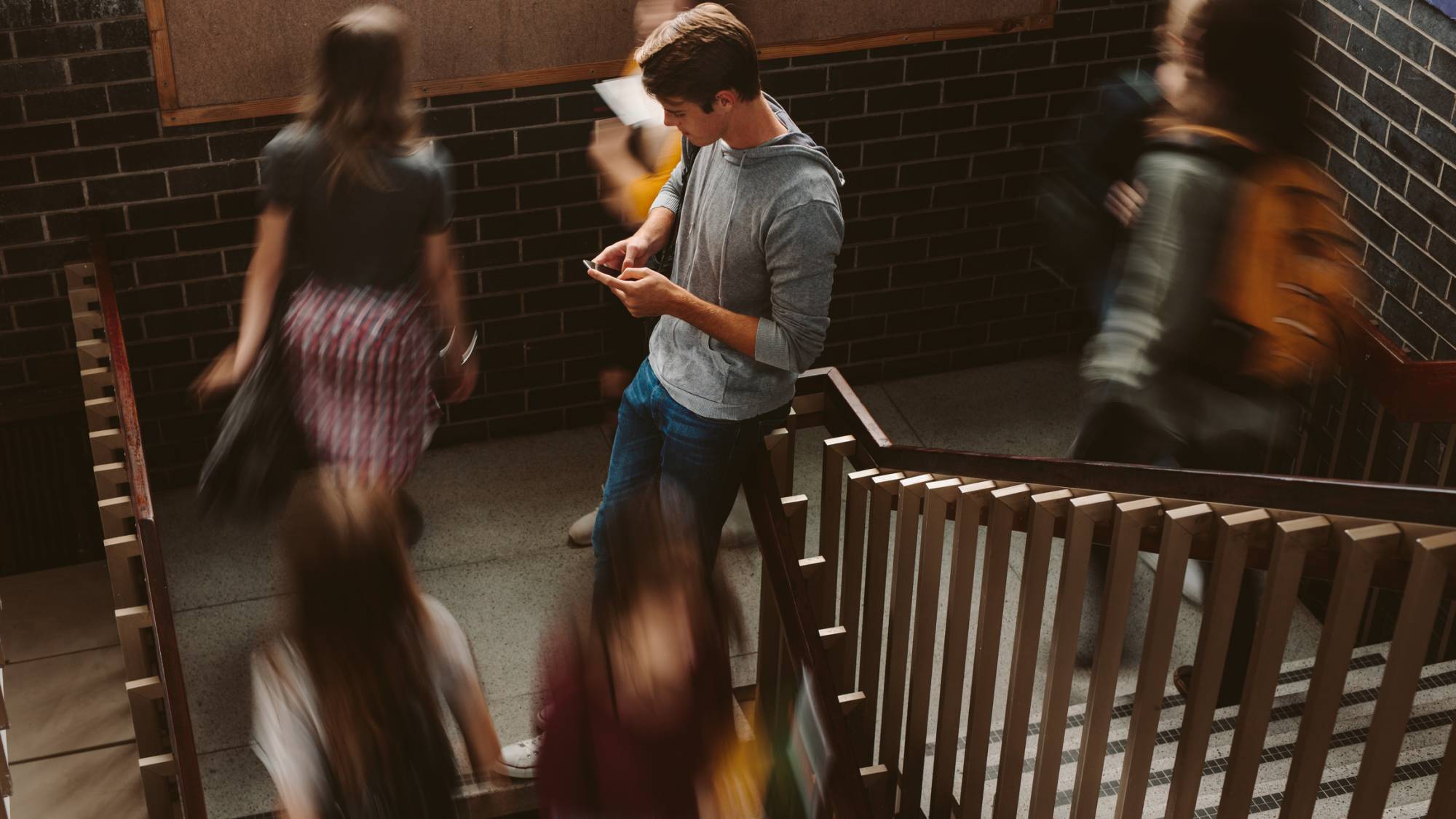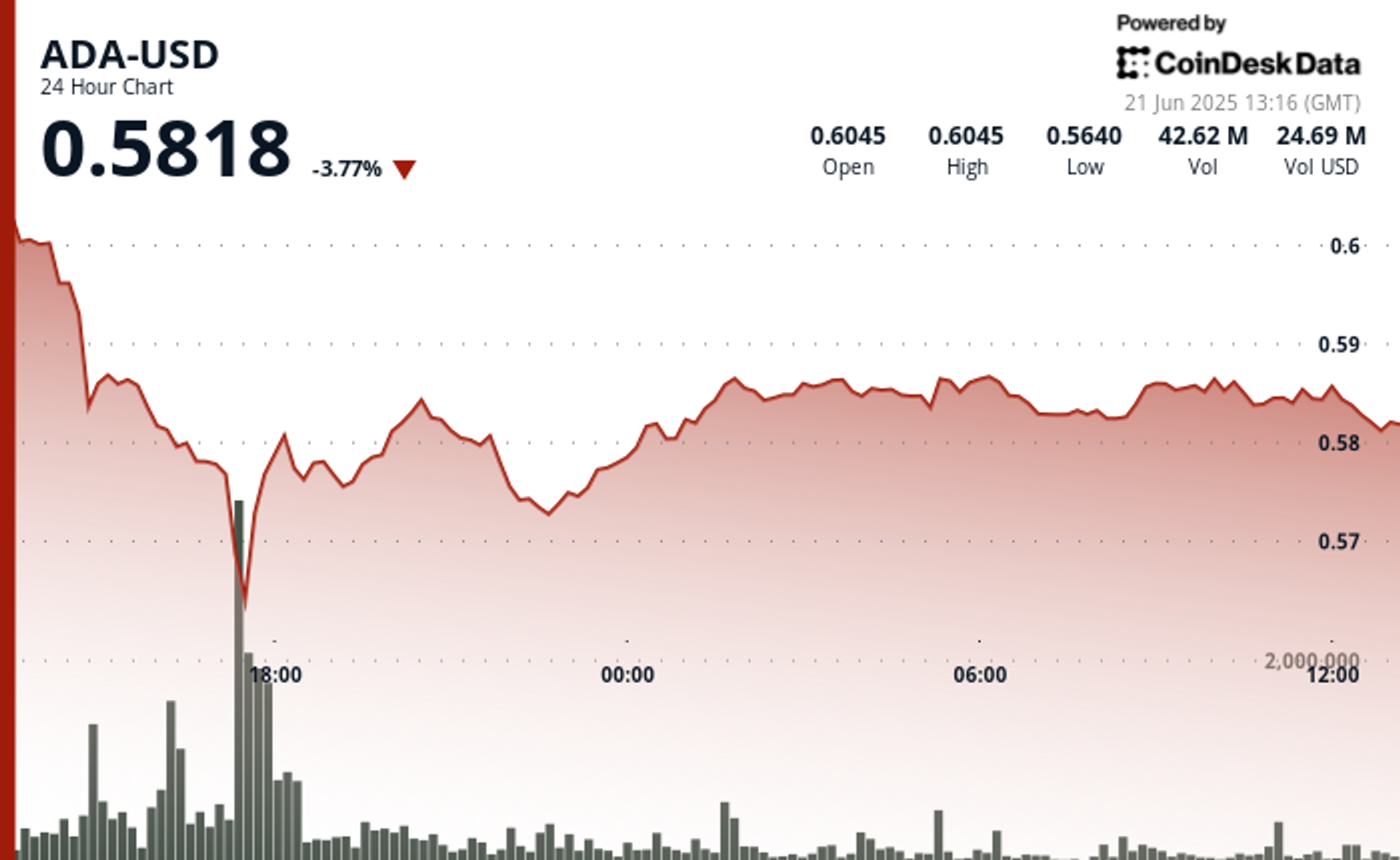After-school Programs, a Boon for Learning, Could Face Trump Cuts
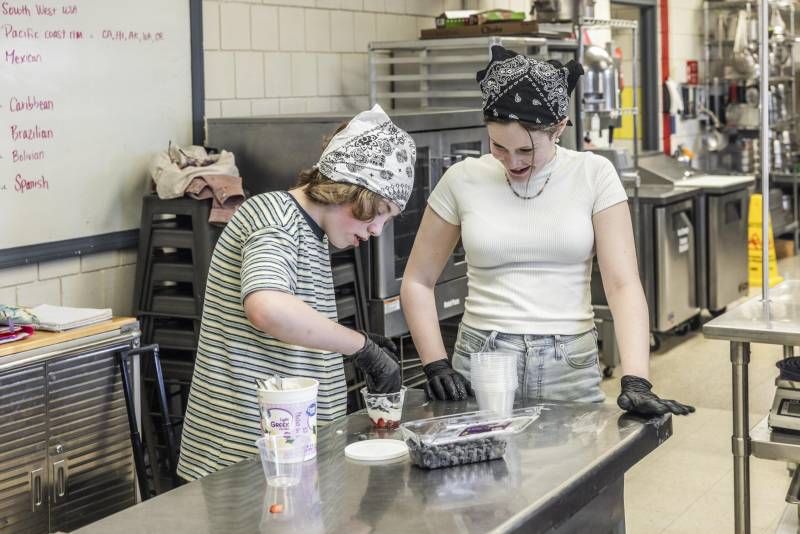
Around 3:30 in the afternoon, a group of bandana-clad middle schoolers gather around a neatly laid table, covered with a colorful, floral tablecloth. The smell of freshly baked granola wafts through the industrial-style kitchen as students prepare yogurt parfaits.
“We’re making it like the French flag, so red for strawberry, white for yogurt, and then blue for blueberry,” says sixth-grader Blaine Hart.
This after-school cooking club in a rural community in Maine is preparing to host an international food festival at the end of the month. The students are currently finishing up a unit on French cuisine, plating and presentation.
The club is part of the federally funded after-school program in school district MSAD 54, which serves the area in and around Skowhegan, about 90 miles north of Portland. The “REACH Afterschool Program” offers students a host of enriching activities that educators in this low-income community say they couldn’t otherwise afford, including outdoor adventure, sewing, chess, robotics, theater and cooking.
But the program faces an uncertain future: In his initial budget proposal, President Trump has called for consolidating and eliminating several federal education grants. And while the 21st Century Community Learning Centers (CCLC) grant that pays for REACH and many other programs around the country is not specified by name, advocates for afterschool programs believe it could be among those on the chopping block if Congress follows the President’s lead.
NPR reached out to the U.S. Department of Education multiple times for comment about which federal grants are proposed for cuts, and the rationale behind efforts to shrink the federal role in schools. Officials there did not respond.
In an earlier statement, Secretary of Education Linda McMahon wrote, “President Trump’s proposed budget puts students and parents above the bureaucracy … We must change course and reorient taxpayer dollars toward proven programs that generate results for American students.”
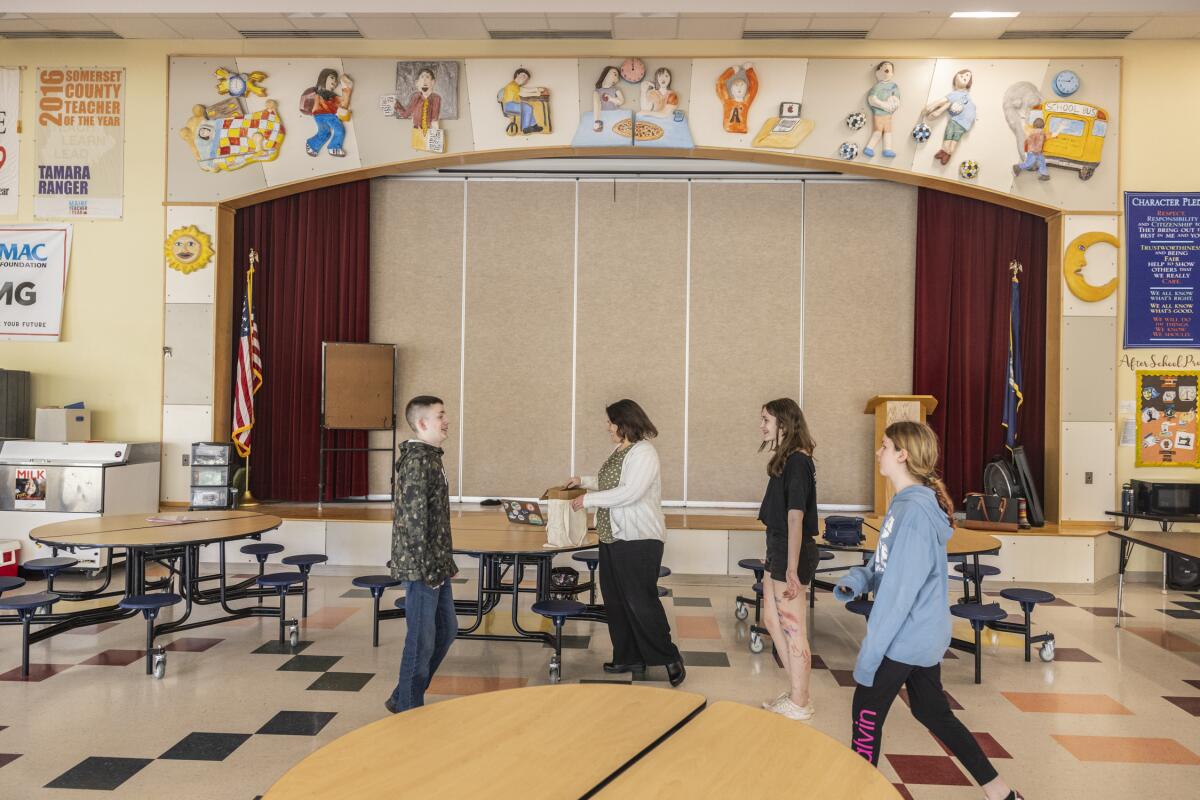
Dawn Fickett, the director of REACH in MSAD 54, says the loss of after-school programs would be a blow for students in the Skowhegan area, where the program has led to impressive academic and other gains. “Having a place for our youth to go to be engaged, sparking joy and learning, is a great way to keep kiddos off our streets and out of trouble,” she says.
Hedy Chang, who founded Attendance Works, a national nonprofit that seeks to combat chronic absenteeism in schools, says research has long shown that after-school programs can also improve student attendance during the school day, among other benefits.
“After-school programs can connect kids to needed resources like food, nutrition,” she says. “And make sure that they’re connected to something that engages them, makes them excited about learning.”
In Maine, schools are also facing other threats to federal funding, and will soon see school mental health services limited by federal cuts. Low-income and rural districts like MSAD54, which rely more heavily on federal funds, would be especially hard-hit.
“I almost can’t imagine our school district without a robust after-school program,” says Fickett. “I could see it really hindering the progress of our community if we didn’t have safe and supportive places for our youth to be, and places that help support their academic success.”
Exposure to new flavors, and experiences
The cooking club in MSAD 54’s after-school program is one of many enrichment options for students, but it remains the most popular.
Brenda Madden, a retired chef who has been running the club for four years, leads a lesson on table presentation and decor. The idea behind the class is to introduce students to cuisines from different cultures, culminating in the annual food festival the students host for the wider school community.
“Magic happens in the kitchen,” says Madden. By introducing new flavors, cuisines, and skills to her students, she says, “it’s taking away the fear of creating magic.”
Seventh-grader Dylan Kirk, who’s busy drizzling croissants with melted chocolate and dried apricots, says he had never thought to combine these flavors until this lesson. “Miss Brenda told me to make it fancy, so I tried my best,” he says, as he presents the dish to the class.
Other students share that paprika, stuffed zucchini and mint-chocolate shamrock shakes are among the flavors and dishes they had never tried until Madden’s class.
“In the beginning of their culinary experiences, they would say ‘I want chicken nuggets and french fries for supper,’ ” says Fickett. “After a year of cooking with Brenda, they will be able to tell you that they would love to whip up paninis with a variety of cheeses, meats or veggies; or making brownies with rosemary or mint.”
On top of encounters with novel foods, Madden says her class is an opportunity to learn about nutrition. “I tell these kids, when you get groceries with your folks, instead of buying a bag of chips, which is two to three dollars, look at a fruit you’ve never tried before.”
Madden says there’s another extra draw for students in the cooking club: “Kids are hungry. They know they’re going to have something to eat here,” shes says.
That hunger combines with the satisfaction that they created the meals they get to enjoy. “We always test our own product,” says sixth-grader Molly Fitzpatrick.
Meeting academic goals while having fun
Before the REACH students split off into their various clubs, they have their noses in books and worksheets—it’s a dedicated 30 minutes for finishing homework after school.
“At the middle school,” Fickett says, “teachers report they see a 90% increase in homework completion with their kids who attend our program.”
Part of what has made her program successful is collaborating with school-day teachers to create continuity in the after-school program, she explains.
At the elementary school level, Fickett and other staff members give extra support to the youngest students with the goal of closing academic gaps early.
Last year, she says, “in our kindergarten through 2nd grade after-school program, 37 out of our 38 [low-performing] students showed improvement in literacy.” She saw similar gains for upper-elementary students.

Chang, of Attendance Works, says this kind of collaboration can make a big difference. “Students can get access to extra resources and support, to learn an academic concept, or have a different, more hands-on approach to learning,” she says.
All the clubs in Fickett’s after-school program incorporate academic goals. In fact, it is one of the requirements of the federal 21st CCLC grants.
In Madden’s cooking club, for example, students practice math by adding, subtracting and multiplying for recipes. They meet science goals, such as observing chemical reactions between ingredients. It’s almost like the learning is snuck into the fun.
At the same time, after-school programs also help develop students’ abilities to work together, building essential non-academic skills.
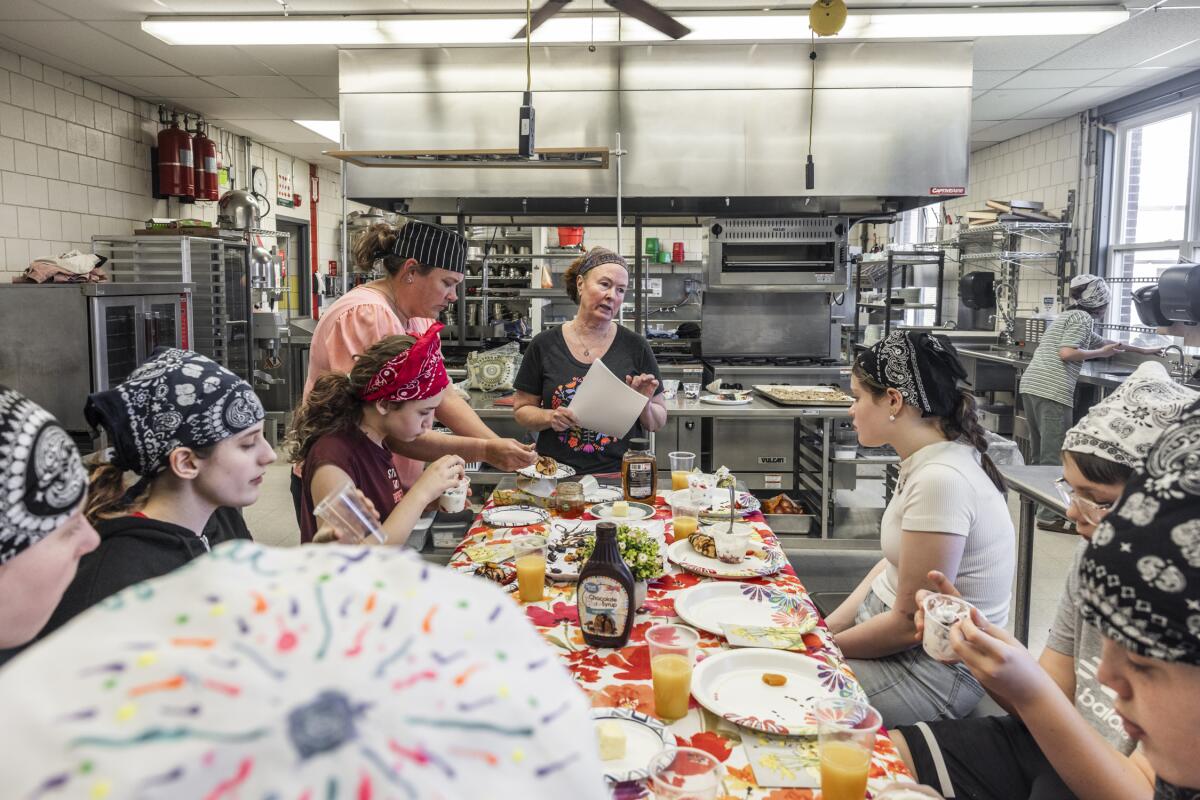
“What Brenda does really well is establish from the beginning how we work best together as a group, how we communicate, how we problem-solve,” says Fickett. “And that really just reinforces those social, relational skills that our youth absolutely need.”
Attending school is also a requirement for attending the after-school program. Sixth grader Molly Fitzpatrick thinks it’s a smart system, “because I’ll be excited to go to school on Monday because I don’t want to miss cooking.”
A free, essential service for parents, too
Seventh-grader Dylan Kirk’s mother, Cynthia Kirk, picks him up after she finishes her workday as Skowhegan’s waste-management supervisor. “We work full time. Sometimes I’ve worked multiple jobs, my husband as well,” she says.
It’s been a huge benefit for Dylan to take part in REACH — something he’s done since the program got its start in 2019.
“He’s actually been experiencing a lot of different things that he probably normally wouldn’t be able to without the after-school program,” Cynthia says.
She describes her son as a “hands-on kid” who learns concepts better by practicing them in a tangible way rather than abstractly, in the classroom. The after-school activities have allowed him to do just that.
“I just like building stuff,” says Dylan, whose favorite after-school club is robotics, although cooking club is a close second.
“He’ll come home with recipes and say ‘Mom, can we make this? Can we try this? This was really good,’ ” says Cynthia.
Now, Cynthia says she’s concerned: “When it comes to the kids, this should be last on the list of things to be cut. So many kids need these programs. They need a place to go after school. Daycare is very limited for families after a certain age.”
Dawn Fickett says she has already been working to obtain funding from local businesses and other donors to find ways to keep the after-school program operating.
A child’s life, she says, doesn’t simply end when the dismissal bell rings at school. “In this district, we don’t look at school and after-school as separate … we are a vital part of a child’s school day.”
Janet Woojeong Lee and Mhari Shaw contributed to this report.
Transcript:
AILSA CHANG, HOST:
After-school programs in rural and low-income parts of the country are not only free child care, they also bolster student learning beyond the school day, and they’re essential for letting working parents work. But now many fear that President Trump’s proposed education cuts may threaten federally funded after-school programs. NPR’s Jonaki Mehta went to a rural school district in Central Maine to see one such program.
JONAKI MEHTA, BYLINE: In a building right next to the Skowhegan Area Middle School’s hockey field, the smell of freshly baked granola is wafting from an industrial kitchen.
(SOUNDBITE OF WATER RUNNING)
BRENDA MADDEN: Get your hands washed. We got things to do.
MEHTA: Retired chef Brenda Madden leads cooking club. On today’s agenda…
MADDEN: We’re going to begin our journey into France. You are going to be making parfait cups.
MEHTA: Students in bandanas and chefs’ hats are in a sort of assembly line, putting together yogurt parfaits, including sixth-grader Blaine Hart.
BLAINE HART: We’re making it into, like, the French flag, so red for strawberries, white for yogurt and then blue for blueberries.
(CROSSTALK)
MEHTA: After school, a cooking club is just one of the many activities students of the Skowhegan Area school district get to pick from. Part of their focus is on multicultural cuisine.
DAWN FICKETT: In the beginning of their culinary experience, they would say they’d want chicken nuggets and French fries for supper.
MEHTA: That’s Dawn Fickett. She’s the director of the after-school program here.
FICKETT: After a year of cooking with Brenda, they will be able to tell you that they would love to, you know, whip up paninis with a variety of cheeses and meats or veggies.
MEHTA: This kind of exposure to new cuisines, cultures and handy life skills are all part of why after-school programs are a boon in this rural and low-income community. This program exists because the district got a federal grant for after-school programs in low-income areas. But President Trump’s recently released budget proposal calls for significant cuts to education programs as his administration tries to reduce the government’s role in schools. Advocates for after-school programs, like Dawn Fickett, are worried the grant could be on the chopping block in the future.
FICKETT: I could see it really hindering the progress of our community if we didn’t have safe and supportive places for our youth that help support their academic success.
MADDEN: Can you come to the fridge with me, and we can get some of the ingredients?
MEHTA: Over in a corner of the kitchen, seventh-grader Dylan Kirk is busy decorating croissants.
DYLAN KIRK: And I just drizzled some chocolate and some dried-up fruit. Miss Brenda told me to make it fancy, so I tried my best.
MEHTA: Kirk says he wouldn’t have thought to combine these flavors before he joined cooking club. He also loves outdoor adventure and robotics, some of the other activities at the after-school program. And these clubs aren’t just a fun, safe way to spend time after school. Fickett says she works closely with school-day teachers to make sure they sneak relevant learning into the after-school program.
FICKETT: Nutrition, literacy, STEM and multicultural education – we can pull threads of all of those within cooking. They’re reading recipes, multiplying, subtracting.
UNIDENTIFIED STUDENT #1: How much salt did you add?
UNIDENTIFIED PERSON: A whole cup of salt.
MEHTA: Meeting academic goals is part of the requirement for the federal grant. Fickett says last year, 91% of the low-performing elementary school students in the program showed improvement in reading, and the students meet all kinds of nonacademic goals, too.
FICKETT: Something that Brenda does really well is establish how we work best together as a group, how we problem solve – social, relational skills that our youth absolutely need for success.
MEHTA: Research also shows that after-school programs play a big role in making sure kids show up to school. In fact, attending school is a requirement for participating in this after-school program. Something sixth-grader Molly Fitzpatrick (ph) thinks is working.
MOLLY FITZPATRICK: I don’t know. Like, I’ll be excited to go to school on Monday ’cause I don’t want to miss cooking, right?
UNIDENTIFIED STUDENT #2: I don’t know even know what that is, but it looks good with strawberries.
MEHTA: As cooking club comes to a close, students sit around a table.
MADDEN: How about we set some flowers on the table?
MEHTA: They’ve laid it neatly with a floral tablecloth, plates and cutlery. They’re sitting around the chocolate and apricot-drizzled croissants Dylan Kirk prepared earlier. Producer Janet Woojeong Lee takes a temperature on how the students rate the dish.
(CROSSTALK)
UNIDENTIFIED STUDENT #3: I was struggling to get that out.
JANET WOOJEONG LEE, BYLINE: Out of 10, how would you rate your meal?
UNIDENTIFIED STUDENT #4: It’s pretty regularly at 10.
MEHTA: As the students leave, parents start showing up to pick up their kids, including Dylan Kirk’s mom, Cynthia Kirk, who says she couldn’t imagine their family life without the after-school program. She and her husband both work full-time, so the child care is essential.
CYNTHIA KIRK: Instead of him just going home and being home alone, he can experience all these different activities instead, plus get some extra study time ’cause we’re a pretty busy family in the evenings.
MEHTA: Now, she worries federal cuts could mean this essential program could go away.
KIRK: That should be bottom of the list when it comes to cuts. The kids are our future. We have to invest in them.
MEHTA: The future of grants, like the one funding this after-school program, will soon be in the hands of Congress.
MADDEN: Does everybody have what they need?
MEHTA: Until then, the students at cooking club are still relishing their creations.
MADDEN: So who’s pleased with themselves today?
UNIDENTIFIED STUDENT #5: Me.
MADDEN: Happy dance time?
UNIDENTIFIED STUDENTS: Yeah. Yeah.
MADDEN: Do it. Break it out.
MEHTA: Jonaki Mehta, NPR News, Skowhegan, Maine.
What's Your Reaction?
 Like
0
Like
0
 Dislike
0
Dislike
0
 Love
0
Love
0
 Funny
0
Funny
0
 Angry
0
Angry
0
 Sad
0
Sad
0
 Wow
0
Wow
0


